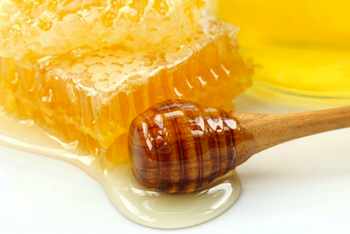- MENU
- HOME
- SEARCH
- WORLD
- MAIN
- AFRICA
- ASIA
- BALKANS
- EUROPE
- LATIN AMERICA
- MIDDLE EAST
- United Kingdom
- United States
- Argentina
- Australia
- Austria
- Benelux
- Brazil
- Canada
- China
- France
- Germany
- Greece
- Hungary
- India
- Indonesia
- Ireland
- Israel
- Italy
- Japan
- Korea
- Mexico
- New Zealand
- Pakistan
- Philippines
- Poland
- Russia
- South Africa
- Spain
- Taiwan
- Turkey
- USA
- BUSINESS
- WEALTH
- STOCKS
- TECH
- HEALTH
- LIFESTYLE
- ENTERTAINMENT
- SPORTS
- RSS
- iHaveNet.com: Recipes
Lori Zanteson

Honey's Health Advantages
Humans have always been drawn to the alluring sweetness of honey. Before the advent of sugar refinement, it was the only food available -- other than fruit -- that satisfied a sweet tooth. It was worth a few bee stings to come home with the prize: a golden honeycomb. Honey also was valued as "medicine" by folk healers for conditions such as lack of vigor and skin healing. Today, modern science is beginning to confirm that honey possesses unique health properties.
How Honeybees Create Honey
How do honeybees create this delicious concoction we know as honey? It all starts with a colony of up to 80,000 bees that live together in a beehive. The bees collect nectar from plants in their mouths, which mixes with enzymes in their saliva that turns it into honey. They carry back their precious cargo and deposit it into cells in walls of the beehive for future use. The fluttering of their wings reduces the moisture content of the honey. The bees from a colony may collectively visit more than 2 million flowers in order to make a pound of honey.
Honey's Health Benefits
Recently researchers have put honey under the microscope, discovering that it holds interesting biochemical properties. Honey contains phenolic compounds -- plant antioxidants linked with health benefits -- that originate from the nectar in the plant. Malaysian researchers found that ellagic acid, the phtyochemical also found in berries and pomegranates, is the most abundant phenolic present in Malaysian samples, as they reported in
Although a few studies hint that honey may exhibit better glucose response than table sugar, the
Honey Varieties
Just as there are varieties of grapes that impart unique flavors to wine, so there are varieties of honey that produce specific colors and flavors -- all dependant on the bees' nectar sources. Today, chefs pair honey varieties with savory dishes and aged cheeses, as well as desserts. Honey is also a popular ingredient in food products, such as dressings, cereals and cookies.
Keep in mind that "honey laundering" is occurring in some imported honeys, which may be included in products containing honey, according to an August 2011
Subscribe to Receive our Gourmet Recipes
FOOD, DRINK & RECIPES [...]
APPETIZERS | SOUPS | PASTA | SALADS | MAIN COURSES | SEAFOOD | CHICKEN | PORK | LAMB | BEEF / VEAL | VEGETARIAN | SIDE DISHES | DESSERT | HEALTHY | WOLFGANG PUCK
Honey has Health Advantages, But Moderation is Key - Healthy Eating
World-renowned chefs with an extraordinary passion for food share their passion on iHaveNet.com. These chefs make great cooking easier than imagined. Each gourmet recipe features expert advice and an easy-to-make recipe. Exactly what you need to transform your home cooking from acceptable to delectable
© Tribune Media Services